|
“I extend my greetings to all the members of the Society of Catholic Apostolate and to all who share the charism of St. Vincent Pallotti. He has become an enlightening and inspiring beacon in the Church. His charism is a precious gift of the Holy Spirit, because it has given rise to and continues to call forth various forms of apostolic life and animates the faithful to actively engage in Gospel witness.” – Pope Francis (Audience with Members of the XXI General Assembly of the Society of the Catholic Apostolate, October 10, 2016) Today is the 5th Anniversary of the Catholic Apostolate Center. It is a ministry of the Immaculate Conception Province of the Society of the Catholic Apostolate (Pallottine Fathers and Brothers). The Center came into existence through the inspiration of the Holy Spirit and the discernment of the Pallottines in collaboration with many others. Last week, I sat in the Clementine Hall of the Apostolic Palace in Vatican City and listened to Pope Francis speak the words quoted above. The charism of St. Vincent Pallotti of reviving faith, rekindling charity, and forming apostles is what permeates all that the Catholic Apostolate Center does. Our mission is a simply a 21st century way of expressing this charism. The Center is responding to the call of Pope Francis to the Pallottines: “I encourage you to push forward along your path with joy and hope, committing yourselves with all your heart and with all your strength, so that the charism of your Founder bear abundant fruit also in our time. He loved to repeat that the call to the apostolate is not reserved to some, but is addressed to everyone… to operate with renewed vigor to reawaken faith and rekindle charity, especially among the most vulnerable segments of the population, the spiritually and materially poor.” On behalf of the Pallottines, the Board, Staff, Collaborators, and Advisors of the Catholic Apostolate Center, I offer thanks to all of those who collaborate with us, especially our affiliates, those who follow us on social media, utilize our resources, develop projects with us, and give generously in a variety of ways. Calling all to be co-responsible for the mission of Christ and his Church and to work apostolically in a collaborative way is a central element of the charism of St. Vincent Pallotti. We look forward to the years to come and plan to provide even more resources that will assist in the formation of “authentic apostles of Christ in the Church and in the world” (St. John Paul II). Please know that we at the Center are in prayerful remembrance of all those who are assisted by our ministry. May we be in prayerful solidarity with one another as Pope Francis is with us all. “I entrust all of you to the protection of Mary Most Holy, whom St. Vincent Pallotti venerated especially as Queen of the Apostles. Her good example of apostolic zeal and perfect charity, invites us to pray without ceasing to invoke the gifts of the Holy Spirit upon the apostles of today, so that the Gospel of her Son can be proclaimed in every part of the world.” May the Charity of Christ Urge Us On! In God, the Infinite Love, Fr. Frank
0 Comments
"This encouragement to holiness is renewed and takes on particular resonance – we love to repeat it – in this year of the Council, it highlights the note of holiness and apostolate of the church."
– Pope St. John XXIII, Homily during the canonization of St. Vincent Pallotti, Rome 1963 For a city that has seen the rise and fall of emperors, dictators, generals, politicians, popes, saints, and sinners over the millennia, it's hard to imagine that a humble priest from the peasant-filled mountains of Bergamo, Italy could make such a difference in the world. On a moonlit night in October 1962, Pope St. John XXIII stood on his balcony in Rome and addressed the people below: I hear your voices. Mine is only a single voice. But what resounds here is the voice of the whole world; here all the world is represented. One might even say that the moon rushed here this evening. Look at her high up there to behold the spectacle. This is how we close a great day of peace. Glory to God and peace to men of goodwill. (Discorso della Luna) And so began the Discorso della Luna, or “Moonlight Speech” by Pope St. John XXIII. Earlier that day, he opened the Second Vatican Council. Knowing he needed inspiration, this humble Bishop of Rome looked to another simple priest of Rome, St. Vincent Pallotti. A year later, Pope St. John XXIII declared Vincent Pallotti a saint. During the canonization, he called on the intercession of Saint Vincent Pallotti for himself, priests, laity, and the council and actually went to the body of St. Vincent Pallotti to pray before him. Before the election of St. John XXIII, popes rarely left the confines of the Vatican. Pope St. John XXIII himself made few official outside trips and only did so under great consideration. Because of this, one can only imagine the gravity of a visit from the Pope to pray before the body of St. Vincent. At St. Vincent Pallotti’s canonization, Pope St. John XXIII once again implored the crowd to follow this new saint’s example both in life and indeed. One month later, while visiting the Pontifical Major Roman Seminary (the seminary of the diocese of Rome) he also begged the students to follow St. Vincent Pallotti. The pope went as far as to call him his own "choicest guide". He called St. Vincent a wise custodian 'of pastoral spirit' and a source 'of teaching and encouragement for all times!' The spirit of Saint Vincent Pallotti can be seen throughout the Council and the work of the council. Pope St. John XXIII shared St. Vincent's vision that we are all called to holiness – that the universal call to holiness is open to the laity too, not just priests and bishops. He had a vision that Christ’s love needs to be accessible to all believers. Pope St. John XXIII demanded that the Church teach that Christ came for all! The concept of the universal call to holiness was written into multiple documents of the council, such as Lumen Gentium. Though Pope St. John XXIII did not live to see the completion of this important council, his spirit and the spirit of St. Vincent Pallotti helped to guide its direction. One of the key documents of the council was Apostolicam Actuositatem, or, the Decree on the Apostolate of the Laity. It emphasized the role of the laity within the Church: They should not cease to develop earnestly the qualities and talents bestowed on them in accord with these conditions of life, and they should make use of the gifts which they have received from the Holy Spirit ... They should also hold in high esteem professional skill, family and civic spirit, and the virtues relating to social customs, namely, honesty, justice, sincerity, kindness, and courage, without which no true Christian life can exist. The perfect example of this type of spiritual and apostolic life is the most Blessed Virgin Mary, Queen of Apostles. (Apostolicam Actuositatem) The title “Mary, Queen of Apostles” was one that was revived by St. Vincent Pallotti. This was an ancient title that had fallen out of use. During his ministry, St. Vincent Pallotti invoked this title to demonstrate that all were in the Upper Room, not just the twelve apostles. He had a portrait commissioned showing the number of woman and men at the moment of Pentecost. Like the symbolism behind the painting suggests, Apostolicam Actuositatem forever enshrined the notion that all people are called to be apostles of Christ. This document had two main writers: Fr. William Mohler, S.A.C. Rector General of the Pallottine Fathers and Brothers and the youngest bishop in attendance, Karol Wojtyla. Fr. Mohler and the future Pope St. John Paul II wrote into this document the shared vision of two humble priests John XXIII and Vincent Pallotti. We must follow these examples in our lives. Let us strive to bring the gospel to all, just as St. John XXIII and St. Vincent Pallotti did. Summertime in the United States brings about a lot of great traditions. It brings longer days, shorts, flip-flops, trips to the beach, barbecues, and processions. Processions are large public demonstrations of faith and piety that have been handed down from generation to generation. In Italian American communities, processions are filled with music, color, and, of course, great food—lots and lots of great food. We celebrate in this way because our fathers did before us, and their fathers did before them. This summer I've already been able to attend to two processions and I look forward to a few more. I attended the 107th annual Festa Dei Ceri in Jessup, Pennsylvania, and the 112th feast of St. Anthony Italian Festival in Little Italy Baltimore, Maryland. Each has a long tradition and there are as many differences as there are similarities. At the core, each is a faith that is embedded within its community that is rich and deep.
Festa Dei Ceri, or simply St. Ubaldo’s Day, is a tradition that was brought from Gubbio, Italy by immigrants to Jessup, PA in 1909. Tradition states that in the early 1100s, Ubaldo Baldassini, the Bishop of Gubbio, met with Frederick Barbarossa , the Holy Roman Emperor who was on a military campaign in Italy, and convinced him not to invade and to spare the town from destruction. When the bishop returned with the good news, he was raced through the streets on a platform to reassure the town’s safety. The residence commemorated this event by racing a statue of him, along with statues of St. George and St. Anthony, through the narrow streets of the medieval town. Immigrants brought this tradition with them when they emigrated to Jessup in large numbers in the early 1900s. The Running of the Saints occurred from 1914 to 1952, then from 1976 to 1990, and has consistently been held since 2000 after being revived by local high school students. The day begins with the high school marching band waking the town up and calling them to Mass. After Mass, the statues which are about 30 inches tall are placed in 15 foot wooden structures that are designed to carry the saints and weigh about 400 pounds each. The saint statues are then blessed with holy water, first by the parish pastor or the Bishop of Scranton, then by the team captains and carried through the town by three different teams of men. A relic of St. Ubaldo is also processed and venerated with a significantly larger statue of him throughout the town. In the late afternoon, the three statues are then raced through the town at breakneck speed and over steep terrain. St. Ubaldo always wins, followed by St. George and St. Anthony. After the statues are removed and the platforms are disassembled, they are brought back to the church. The whole weekend is an expression of faith, family, and tradition. A few weeks after that, I was able to attend the St. Anthony Festival in Little Italy in Baltimore, Maryland, which dates back to the Great Baltimore Fire of 1904. While massive fire raged in parts of the city, parishioners gathered at Saint Leo the Great Church in the Little Italy neighborhood of Baltimore. The parishioners prayed to St. Anthony for the protection of their neighborhood. Luckily, the neighborhood was spared. Many attributed this to the intercession of St. Anthony. The parishioners celebrated his feast day with a Mass, procession, and street fair which has continued ever since. Just five years after the beginning of celebration of the feast, the parish became a ministry of the Pallottine Fathers and Brothers. This year, I attended the events along with two Pallottine students in formation. The three of us served Mass and partook in the procession through the streets. Many people came out of their houses and cars to watch us. It was great fanfare with a full band, 4th Degree Knights of Columbus color guard, and a highly decorated statue of St. Anthony. Many people pinned money to strips of cloth tied around the statue as a small offering and prayer to St. Anthony. There was food, music, and an intense bocce ball tournament. Each of the celebrations has a few core elements that all processions have. Processions are about faith and community. Processions help increase our faith by publically displaying various statues and images. It is a form of evangelization in the streets. At the same time, they help build community by calling all those together for a common cause. They reinforce not only our proud heritage and traditions, but also our faith. They promote our faith being celebrated together. Processions are also about the individuals' participation. Attending a procession invites us to feel that we are a part of the community and reinforces our own faith. When I go to procession, for example, I not only enjoy the fanfare, but am also reminded that my faith is connected to those around me. I encourage you to seek out processions and bring your friends and family. Pray, eat, and enjoy each other's company. Processions can be beneficial for every group that continues the practice, not just the Italian American community. Ours just happen to have a bit more tomato sauce and wine than most! As the summer goes on, I look forward to many more processions and I invite you to go out and either attend or partake in a procession. Miraculously, the end of the school year has arrived. Certainly there’s been many a trial and challenge to endure and power-through, especially as dreaded final exams approached, but the close of a semester affords a unique phenomenon in the spiritual lives of students, beginning with attendance. The regulars, for example, at the late-night on-campus Mass will often be joined by those either taking a break from or just beginning their academic cramming. Of course, new faces are always welcome and, as the presiding on-campus priests would point out, are a particularly beautiful expression of faith. Recognizing the limits of our gifts and talents, let us petition the One Who perfectly graced each of us individually with these gifts in order to properly apply them towards our endeavors! Rather than only calling upon God when we want His help, our prayers can be made in faith and hope and, no matter the results, comprise of praise and thanksgiving for all God has done for us. However, we cannot pray as if demanding results while doing no work on our own part. In theological terms, grace cooperates with nature. In other words, we do not live as Christians by sheer grace nor by nature unassisted, but in a mysterious way grace— the supernatural gift of God— works unseen and often unknown in our lives. This requires that we prepare ourselves to receive and be moved by grace and that we make sure to then act in such a way as to not squander such a gift. Something that’s been helpful for me during difficulty or surmounting work is turning to the saints. In such times lies the opportunity for fostering a new devotion, especially to a saint who has faced similar challenges during his or her life. While I would continue to pray for the intercession of St. Joseph Cupertino, patron of students, and St. Thomas Aquinas, patron of the University, shortly before finals week, I was especially blessed this academic year to be able to visit the St. Jude Shrine in Baltimore, the Pallottine-conducted nationwide center of St. Jude devotions, to petition the patron of desperate and hopeless cases. After a welcome, lunch, and tour those I was on pilgrimage with and I had the opportunity for private prayer. I was extremely grateful for the opportunity and humbly added my intentions to the baskets full of written prayers that had arrived from devotees across the country. I immediately remembered what was shared with us earlier that day: though the Pallottines could have abandoned the site and moved into a suburban neighborhood, they recognized the need for and pledged to remain and continue to minister from this place of refuge and solace in the inner city. The sheer volume of prayer petitions I saw showed me how important their decision to remain was. I was in awe to see the amount of faith people had to send in all those intentions each day to the shrine and recognized that many of them were actually in dire situations that were being placed at the feet of St. Jude. As I got up to leave, I recalled the words of the “Memorare” prayer and perpetual promise of maternal love of the Blessed Mother. How surely, I reminded myself, would the Mother of God continue to intercede for me and grant me the strength to endure the closing of the academic year with open arms! Whenever we are weak, our Mother at once flies to our aid when we faithfully call upon her name! Whenever you find yourself in a difficult or busy time, I invite you to call upon the help of the saints or ask for Mary’s intercession by praying the Memorare below: Remember, O most gracious Virgin Mary, that never was it known that anyone who fled to thy protection, implored thy help, or sought thine intercession was left unaided. Inspired by this confidence, I fly unto thee, O Virgin of virgins, my mother; to thee do I come, before thee I stand, sinful and sorrowful. O Mother of the Word Incarnate, despise not my petitions, but in thy mercy hear and answer me. Amen. Vivat Jesus! In the proclamation “Jesus lives!” which originates from St. Francis de Sales, the Church finds and experiences for herself the mystery of salvation. This then energizes and animates all her works. Because Christ has risen from the dead, we are assured of a most glorious hope that God loves us and that no trial nor any tribulation can overshadow the truth of such saving grace. Doesn’t it feel so liberating to once again be able to exclaim, “Alleluia!”, or burst into the Gloria at Mass? That innate feeling of wanting to, needing to, and being compelled to praise God in these ways reflects a deeper desire to share this incredible Good News with others—there just isn’t any room for passivity in the Christian life. Certainly, the Resurrection event gained for us the eternal reward in Paradise that we could not achieve ourselves. But to really benefit from it, the experience needs to change us, that is, to make us marvel at God’s merciful love and then continuously reveal that to all the world. Donald Cardinal Wuerl made this observation back in January for the occasion of the dedication the new altar of the Pallottine Seminary at Green Hill, home of the Catholic Apostolate Center: In His command, “Do this in memory of Me,” Jesus invites each one of us into the Mystery of His Death and Resurrection. We’re not just going to be passive bystanders who come to know Him. We’re not just going to be someone who looks on the merry-go-round and says, “Isn’t that wonderful?” We’re invited into the Mystery itself. In doing so, we manifest the glory of the Lord; it is our mission as Christians. As Pope Emeritus Benedict XVI reminded us at his installation Mass, “the purpose of our lives is to reveal God to men.” The Resurrection cannot be confined to a mere moment in history two thousand years ago. All that it accomplished cannot be measured; its effects continue to affect and move us even now. Today we are truly experiencing the great joy that the Risen Lord promised His disciples. And this authentic joy does not fade in times of mourning or despair. Especially in those times, we can look up in hope, knowing the same Risen Christ is with us at every moment to offer courage and mercy. It is in this reality—not mere speech and daydreams—that the Church exists and works from. As Benedict XVI continued, “The Church is alive — she is alive because Christ is alive, because he is truly risen.” As Christians, we bear the Name of the Savior through Baptism. We invite the world to encounter Christ, Whose presence we manifest through the charitable actions of our lives. Just as we share with one another the light from the Paschal candle during the Easter Vigil, so, too, do we share the light of hope and faith with those in darkness. By the grace of God and the support of each other, may we, at every moment of our lives, join with the whole Church and the heavenly host to praise God for His mercy and goodness. As Timothy Cardinal Dolan reminded us “‘Our Savior, Jesus Christ, has destroyed death, and brought us light and life!’ No wonder we [reply], ‘Alleluia!’” It was the Second Vatican Council which decreed, "From the very beginning of the church men and women have set about following Christ with greater freedom and imitating him more closely through the practice of the evangelical counsels, each in their own way leading a life dedicated to God." It is on this observation that I write in commemoration of the close of the Year of Consecrated Life, which Pope Francis inaugurated on November 30, 2014 (the First Sunday of Advent) and concluded on February 2, 2016 (the Feast of the Presentation of Jesus in the Temple). Addressing all consecrated people in an Apostolic Letter, His Holiness expressed three aims for this great year: first, “to look to the past with gratitude;” second, “to live the present with passion;” and third, “to embrace the future with hope.” Similarly, he called upon the laity, “who share with them the same ideals, spirit and mission,” and the whole Christian people to become more aware of the gift of consecrated men and women, “heirs of the great saints who have written the history of Christianity.” Growing up, I was blessed to have been taught, mentored, and befriended by a number of consecrated religious, namely the Sisters of the Resurrection and the Lasallian Brothers. When I arrived at The Catholic University of America, however, my exposure to consecrated religious expanded to include the Order of Friars Minor (Franciscans), the Order of Preachers (Dominicans), the Little Sisters of the Poor, the Servant Sisters of Mary Immaculate, and the Pallottines (and their Apostolate Center!), to name a few! As I got to know each of them, I became more aware of the joy and the grace inherent of their living out their respective Order’s charisms and spirituality, be they involving education, service, contemplative prayer, or dogmatic theology. In spite of the differences between each order and the varying reasons each member had for professing, there remains one commonality: desiring to follow Christ and seeking to imitate Him more closely in a life dedicated to God. Of course, there are many ways of doing this— each religious order accomplishes this in accord with its unique spiritual character and gifts— as St. Vincent Pallotti encouraged, “Seek God and you will find God. Seek God in all things and you will find God in all things. Seek God always and you will always find God.” How one discerns entering religious life does not mean one has to force a change in his or her lifestyle; rather, it an acceptance of who one is and surrendering that to the God so loved since Baptism, thereby consecrating him or herself “more intimately to God’s service and to the good of the Church” (CCC 931). In my own discernment, I have found great relief in this understanding— that I can give myself to God as I am in love and He will help me to focus and purify that love in my heart which is to radiate from every action of Christian living. Similarly, the famed Trappist monk Thomas Merton expressed the relationship between discernment and the discerner: Discerning vocation does not mean scrambling toward some prize just beyond my reach but accepting the treasure of true self I already possess. Vocation does not come from a voice “out there” calling me to be something I am not. It comes from a voice “in here” calling me to be the person I was born to be, to fulfill the original selfhood given me at birth by God. As the Year of Consecrated Life concludes, let us remember that it concerns not only consecrated persons but the entire Church! Where would the Church be without the examples set by Saints Francis and Augustine, Ignatius and Dominic, or Vincent Pallotti and (soon-to-be-Saint) Mother Teresa and repeated in their respective Orders? The Church would no doubt be less effective in its charity and evangelization, as Blessed Pope Paul VI observed, “the ‘salt’ of faith would lose its savour in a world undergoing secularization.” Let us then respond to Pope Francis’s call to give thanks for the incredible work done by religious around the world and for their fidelity to their respective charisms while seeking to draw close to them in times of joy and trial and assisting them in their holy endeavors. Finally, let us continue to pray for God to send more numerous vocations among their ranks: may their discernments be a model for our own, that we may echo the words of the great Carmelite Saint Thérèse of Lisieux, “At last I have found my vocation: My vocation is love.” “Keep multiplying your commitment because what Vincent Pallotti prophetically announced, the Second Vatican Council authoritatively confirmed, becoming a happy reality, and all Christians are authentic apostles of Christ and the church and in the world!" -St. John Paul II, 1986 Today we celebrate the feast day of Saint Vincent Pallotti. He is the patron of the Catholic Apostolate Center and his vision guides the Center in all of its works. Today is a special day in which we remember the works, deeds, and vision of St. Vincent Pallotti. I could write to you about his many deeds, his self-sacrificing attitude, or his disdain for honors, but I feel that that is not the proper way to celebrate him. He would be satisfied knowing that we are spending our time recounting his life, and would encourage us to go out into the world doing works of charity and preaching the gospel. St. Vincent Pallotti inspires me. Especially in this Year of Mercy, we need examples of people like him who have led merciful lives. St. Vincent Pallotti had a very simple question that he asked, that took him a lifetime to answer: "Who is God and who am I before him?" Over the past few years this simple question posed by St. Vincent Pallotti has driven my prayer. Many of us have ‘stock’ answers for the first part of the question such as: God is the Father, He is all powerful and ever loving, He is the creator of the universe, the Unmovable mover, and the very essence of infinite love. But for St. Vincent Pallotti, these ‘stock’ answers are just that, stock. They're not the answers from the heart that St. Vincent Pallotti demands. He wants us to form the answer that only we can answer. He then asks us to find ourselves in this context. Let us ponder how we are to respond to his question because the two are intimately connected. At every stage of our lives, this answer is challenged. I invite you to take it back to prayer every single time you pray. "Learn from the Lord to be merciful to your brethren. Trust you will receive from Him a loving and compassionate heart." –St. Vincent Pallotti, 1833 St. Vincent Pallotti expressed that we need to show mercy to all and led by example. As a priest, he would minister to anyone in need. He would visit prisoners, revolutionaries, students, popes, and future popes. He gave himself completely to those in need and wanted those around him to do the same. St. Vincent Pallotti’s example invites us to express mercy even when it seems impossible to do so. This is the way to serve all. The spirituality of St. Vincent Pallotti is relevant to us today. His writings on mercy, for example, sound like they could be quotes from Pope Francis and not the writings from over 180 years ago. In my own spiritual life, St. Vincent Pallotti’s vision inspires me to act with the merciful heart that reflects the power of God's infinite love to all, no matter who they are. This manifests itself in my interactions with my family, friends, coworkers, and anyone I meet. I also make sure that I give back to the community by volunteering and serving others. We can also show mercy to anyone with a simple smile. In times when I feel uninspired and defeated by the world, I can turn to St. Vincent for a quote or gesture that gets me through the challenge. He has revived my faith, rekindled my charity, formed me into an apostle, and will continue to do so every day of my life by leading me to Christ. St. Vincent Pallotti’s vision is as relevant today as it was over 180 years ago. We at the Catholic Apostolate Center and Pallottine apostolates all over the world continue to be inspired by his work. We thank God for this great Saint. May the charity of Christ urge us on! For more information on St. Vincent Pallotti and his spirituality, please visit our Pallotti Portal. To learn more about the Union of the Catholic Apostolate, please click here. One month ago, I had the privilege of celebrating Mass on the altar above the tomb of St. John Paul II. Our small pilgrimage group had requested a Mass at one of the altars, either in the crypt or in St. Peter’s Basilica itself. We never expected that we would be given this particular altar, and all in the group were rather excited. One of my friends, who is an American serving on the general council of his religious community, asked me how we had arranged it. He had been trying for months through various contacts in the Vatican. I told him how we asked simply for a Mass in the basilica. Of course, he was very surprised that no special arrangements had been made. I was simply thankful to the Holy Spirit for arranging it and giving both the pilgrims and me such an important spiritual opportunity. As we made our way to the altar of St. John Paul, we went by the tomb of St. John XXIII. I hope someday to celebrate a Mass on the altar above his tomb as well. Both are personal heroes of mine because of their efforts to expand the role of all in the Church, especially the laity, which was so central to the charism of the founder of my religious community, St. Vincent Pallotti. In his homily for their canonizations, Pope Francis spoke about the efforts of these two popes in this regard:
John XXIII and John Paul II cooperated with the Holy Spirit in renewing and updating the Church in keeping with her pristine features, those features which the saints have given her throughout the centuries. The renewal and updating of the Church called for by the Second Vatican Council, initiated by St. John XXIII, is central to the work of the New Evangelization as articulated by St. John Paul II. This work continued through the efforts of Pope Emeritus Benedict XVI, especially in the Synod on the New Evangelization, and is finding even greater momentum through the witness of Pope Francis. All of them, along with Blessed Paul VI, the teaching of the Council, and Church leadership in general, have called all of the baptized to engage in greater co-responsibility for the life of the Church and for the work of evangelization. When Pope Francis canonized St. John XXIII and St. John Paul II together, various pundits, both in Church and secular media, were quick to give their sometimes very simplistic analysis of the message that he was trying to convey. If there was any “message”, I believe that it is a continued or re-commitment to the on-going renewal of the Church in trustful cooperation with the Holy Spirit and in prayerful communion with the saints. St. John XXIII and St. John Paul II were both visionary leaders who put forward programmatic plans for not simply renewal of the Church as an institution, but renewal of all the baptized in faith and holiness who are called to go forth into the world and renew it as well. In 1959, St. John XXIII said, “Profession of the Christian faith is not intelligible without strong, lively apostolic fervor” (Princeps Pastorum, 32). The Second Vatican Council confirmed this understanding in Lumen Gentium through its teachings about the Universal Call to Holiness and the role of all the baptized in the mission of Christ. St. John Paul II was one of the drafters of the Decree on the Apostolate of the Laity (Apostolicam Actuositatem) along with the then Rector General of the Society of the Catholic Apostolate, Fr. Wilhelm Möhler, S.A.C. St. John Paul taught in his apostolic exhortationChristifideles Laici, which followed the Synod on the Laity in 1987, that The Second Vatican Council has reminded us of the mystery of this power and of the fact that the mission of Christ – Priest, Prophet-Teacher, King – continues in the Church. Everyone, the whole People of God, shares in this threefold mission’” (14). Sharing in the mission of Christ is not simply staying within the confines of the church building. Instead, especially in this time of the New Evangelization, all of the baptized are called to recognize that they are followers of the Christ who are sent on mission by him. In fact, Pope Francis even calls the baptized, in Evangelii Gaudium, “missionary disciples” (120). Fr. Frank Donio, S.A.C., is Director of the Catholic Apostolate Center and teaches for Saint Joseph’s College Online. This blog post was first published on February 4th on the St. Joseph’s College of Maine Theology Faculty Blog. Click here to learn more about our cooperative alliance with St. Joseph’s College Online “Deeds done well.” Note the emphasis that St. Vincent Pallotti places on how things are done. Too often there are many deeds that are not done well. They are done in a half-hearted, almost mechanical way. This is a “maintenance” mentality, as noted by the 2012 Synod on the New Evangelization. A missionary mode of operating, as emphasized by the Synod and by Pope Francis in Evangelii Gaudium, was at the core of the actions of St. Vincent Pallotti. Today is Pallotti’s feast day. As founder of the Union of Catholic Apostolate, an association of lay people, consecrated persons, and clergy, a part of which is the Society of the Catholic Apostolate (Pallottine Fathers and Brothers), he understood the need for all Christians to be people of action, apostles of Christ.
Today in Washington, D.C., thousands and thousands of people are taking to the streets in a show of action for life. One of the things that characterizes this effort is the joy that those who participate show in witness to life. Sometimes people of action, including Catholics, do not show joy in their actions. Joyful action will draw others, invite others, unite them, and send them forth to collaborate for the good of the Church and for the world. As we celebrate today the feast of the Patron of the Catholic Apostolate Center, St. Vincent Pallotti, I invite you to reflect on the the words of St. John Paul II and to do many deeds to make them a reality: “Continue to multiply your efforts so that what was prophetically announced by Vincent Pallotti, and the Second Vatican Council authoritatively confirmed, may become a happy reality, that all Christians are authentic apostles of Christ in the Church and in the world” (Homily of June 22, 1986). St. Vincent Pallotti, pray for us! May the Charity of Christ urge us on! Fr. Frank Donio S.A.C. is the Director of the Catholic Apostolate Center “This is why the Church keeps her missionary spirit alive, and even wishes to intensify it in the moment of history in which we are living. She feels responsible before entire peoples. She has no rest so long as she has not done her best to proclaim the Good News of Jesus the Savior. She is always preparing new generations of apostles” – Pope Paul VI, Evangelii Nuntiandi, 53.
These timely words were written 39 years ago by Pope Paul VI. He will be beatified by Pope Francis this coming Sunday at the close of the Extraordinary Synod of Bishops on the Family. The contemporary discussion of the Church on evangelization was started because of Paul VI calling a Synod of Bishops on that topic in 1974. His great work on evangelization, Evangelii Nuntiandi (Evangelization in the Modern World), offers a comprehensive and still timely view of how the baptized are called to live as evangelizers. St. John Paul II, Benedict XVI, and now Pope Francis, each in his own way, have continued to call the baptized to greater attention to the evangelizing mission that Jesus Christ left us to do until he comes again in glory. Today is the third anniversary of the founding of the Catholic Apostolate Center by the Immaculate Conception Province of the Society of the Catholic Apostolate (Pallottines). The Center works collaboratively with the Church’s leaders to assist active Catholics in becoming apostles. The mission of the Center is inspired by the spirituality of St. Vincent Pallotti, who calls us all to revive faith, rekindle charity, and live as apostles. Apostles are committed evangelizers who have experienced Jesus Christ in their lives, in and through his Church, and are impelled to move out on mission into the world. On mission to do what? Proclaim the love of Christ in word and deed! As Pope Francis teaches, “Every Christian is challenged, here and now, to be actively engaged in evangelization; indeed, anyone who has truly experienced God’s saving love does not need much time or lengthy training to go out and proclaim that love” (Evangelii Gaudium, 120). There is always more that all of us can do to proclaim the love of Christ as fully and effectively as we can. If there are ways in which we as a Center can assist you in living well your mission as an apostle, then please write me at: Director@CatholicApostolateCenter.org. Please pray for our ministry and we will continue to keep you in our prayers. May the Charity of Christ urge us on! Fr. Frank Donio, S.A.C. is Director of the Catholic Apostolate Center. “In the world there is often a lack of joy. We are not called to accomplish epic feats or to proclaim high-sounding words, but to give witness to the joy that arises from the certainty of knowing we are loved, from the confidence that we are saved”
(Rejoice! (Letter in Preparation for the Year of Consecrated Life), n. 3) Last month, on the feast day of St. Ignatius of Loyola, Pope Francis went for lunch at the Generalate of the Jesuits. As I reviewed the pictures from his visit, joy and happiness are very evident. He appears very comfortable and relaxed with them, even though he may not know them well individually. Why is he comfortable? As a member of a religious community, I think that I can venture an answer. He is among those who shared a similar formation as he did as a member of the Society of Jesus. Technically, he formally ended his time as a Jesuit when he became a bishop. Bishops cannot be under the authority of the superior of a religious community. They can, though, ask to continue to use the religious initials of their community as well as wear the habit. Cardinal O’Malley, the Archbishop of Boston, continues to use the initials of the religious community that he came from, the Capuchin Franciscans, as well as wear the habit. Many religious communities even officially continue to count bishops among their membership. Some might think this strange, but the reality is that once a person is part of a religious community, it is part of who that person is and how the person approaches God, life, ministry. When you share a common formation and lifestyle from a relatively young age, that formation does not simply go away. It is a lifestyle that one freely chooses and it forms and informs the person. Once committed to, consecrated life (cf. Catechism of the Catholic Church, n. 913-933) is not something that can easily be cast aside. Even those who have left religious communities often continue to live the spirituality of that community as a single or married person or diocesan priest. I have seen it time and time again. Twenty-eight years ago today, I made my First Consecration of Promises as a member of the Society of the Catholic Apostolate (Pallottine Fathers and Brothers). Our six promises of poverty, chastity, obedience, sharing of resources, spirit of service, and perseverance have provided me with a way, within the context of our community life, to live the charity of Christ. I make no claim to live it perfectly, but I try to live it as authentically as possible. The way that I live more authentically is through the assistance of the members of my community who “urge me on” to live more fully in Christ’s love. This summer, more than most, I have had to even more deeply reflect on the quality of my life as a member of the Society. Am I living as an apostle, as St. Vincent Pallotti called all to do, reviving faith and rekindling charity? Have I fully surrendered, given, and offered myself to God, as the form of consecration of my religious community challenges me to do? If not, then why not? These questions have been very much on my mind as I form, with the help of God, a new member of the Society who began Postulancy only a few days ago. Thirty years ago last month, I did the same and have grown and developed spiritually and otherwise in ways that I would have never thought or imagined. As I work in formation with our Postulant, Brandon, I try to teach, but once again God causes me to learn and for that I am full of gratitude and joy. Pray for those in consecrated life, especially as the Church prepares for the Year of Consecrated Life that will begin this coming Advent! Fr. Frank Donio, S.A.C., is Director of the Catholic Apostolate Center and teaches for Saint Joseph’s College Online. This blog post was first published on August 17th on the St. Joseph’s College of Maine Theology Faculty Blog. Click here to learn more about our cooperative alliance with St. Joseph’s College Online In light of the tragedy continuing in the Ukraine, we offer today a special blog post, a firsthand account of the fighting in Ukraine. This post is written by Fr. Viaczeslav Grynevich, a Pallottine father in Ukraine. We continue to offer our prayers to all those affected by these events.
"With the bitter price She fulfills Fatima’s promises on our land" The first witness of the Maidan (Kiev): Editor’s Note: The Maidan is the name for Independence Square, the main square in Kiev, Ukraine. To be honest, I have absolutely no desire to write, but I want to do this, because I know that you're worried about us. I just returned from Kiev, the Maidan. The whole evening and night they brought the dead bodies there, we prayed, and I only now go out with a sense of shock. I talked to one man who told me that "one night there was about ten attacks, although certainly more. There was not a quarter of an hour without any explosions. Suddenly I got sight of one dead and dozens injured. At one point it seemed it was the end, because people began to flee. There were gathered, however, maybe twenty men, and they began to fight with the militia. Those who fled returned and also began to fight and the militia began to withdraw." I don’t know how they could endure it all! I do not understand! After all, one can not withstand more than fifteen or twenty grenade explosions. One must bear off, remove up to wait until they cease to sicken the stomach, the headache is gone, hearing will return. And they stood…I can not call it differently, only as a miracle. I attribute this miracle to Our Lady of Fatima, whose statue was on the stage in the Maidan since February 17. This figure comes from our Pallottine Sanctuary in Dowbysz and from the moment when it was brought, the militia began severe attacks there. Noise! Shots snipers! It was as if the devil is furious and scared. But the miracles of Mother's care were not lacking: the wind blew in the direction of the militia, pushing the poisonous smoke of burnt tires towards them. Almost all of the most radical people had on their necks or in their hands a rosary. It was the sign by which they were recognized from provocateurs (" tituszek") in the crowd. If “tituszki” wore on her hands white or blue ribbon to distinguish themselves, then those fighting for freedom had the rosary to distinguish them. Someone told me he had been saved during the "berkut’s" attack just because colleagues in the smoke they saw a white rosary and exclaimed, stretching out their hand: "He is one of us! ". Fr. Nicholas told another example of a man who went on a "berkut" shooting with acute ammunition, with a rosary and a candle in his hand. He went as the first, followed by the others. I can not imagine what the members of “berkut” felt holding in their hands Kalashnikovs and seeing a man walking on them with a rosary in his hand. The priest told me that he saw this man praying. When he finished they were talking about the attacks, the sins of Ukraine, the millions of abortions, that now they repent for them. It is very difficult to realize what really happened. But the combination of the sense of triumph with wild pain over killed ones, gathered in one place on the Maidan, does not allow to return to the past life. It's hard to write, but thank you for all. PS. This is only the first victory, but it occurred on Saturday (March 1). I am convinced that all the bullets fired adorn the crown of Our Lady, which with such bitter price fulfills its Fatima’s promises on our land. Fr. Viaczeslav Grynevich SAC "Remember that the Christian life is one of action; not of speech and daydreams. Let there be few words and many deeds, and let them be done well." – St. Vincent Pallotti
Blessings to all on the feast of St. Vincent Pallotti! Some may ask, “Who is that?” I am glad that you asked. St. Vincent Pallotti and his charism are the reason why the Catholic Apostolate Center exists. He was a priest of the Diocese of Rome in the first half of the nineteenth century. His ministry spanned the poor to popes. It did not matter what a person was, but who the person was, an image and likeness of God, the Infinite Love. He saw all people as gifted by God with talents that were meant to be shared. On January 9, 1835, St. Vincent Pallotti was inspired to found the Union of Catholic Apostolate, a collaborative association of lay people, religious, and clergy, who were called to assist in the missionary efforts of the Church through all apostolic methods and means, “revive, maintain, and increase the faith” of Catholics, and be an “institution of universal charity”. Over time, a community of priests and brothers and communities of sisters developed as well. Members of the Union of Catholic Apostolate are now in over 50 countries around the world. The Catholic Apostolate Center, a ministry of Pallotti’s community of priests and brothers, is a 21st century expression of his charism that works to revive faith, rekindle charity, and form apostles. Looking the other way when others were in need was not possible for Pallotti and his life calls all, particularly Catholics, to be more than simply passive participants in the Faith. Instead, we are called to be apostles, sent by Jesus Christ out into the world to spread the Gospel and charitably bring healing and consolation in the midst of brokenness and suffering. In many ways, it is fitting that those who March for Life today in the streets of Washington, D.C. are doing so on his feast day. The marchers not only give witness, but also voice to those who are voiceless, unborn children. The most vulnerable and in need were closest to the heart of St. Vincent Pallotti as he and his companions went into the streets of Rome to care for them day after day and night after night. On January 22, 1850, he died from a respiratory illness because he had braved the elements to continue his work after giving away his cloak to a poor elderly woman on a cold, rainy night. St. Vincent Pallotti understood well what Pope Francis teaches us today: “Jesus, the evangelizer par excellence and the Gospel in person, identifies especially with the little ones (cf. Mt 25:40). This reminds us Christians that we are called to care for the vulnerable of the earth” (Evangelii Gaudium, n. 209) We invite you to learn more about St. Vincent by downloading our Pallotti App or visiting our new Pallotti Portal. May the Charity of Christ urge us on! Fr. Frank Donio, S.A.C. is the Director of the Catholic Apostolate Center We are living in a moment of grace. Blessed John Paul II of happy memory continually spoke of the need for reviving and renewing the faith. Public life today gives too little evidence of religious convictions or moral principles derived therefrom. They find it difficult to “listen to others speaking of God” (Lineamenta on New Evangelization, 19). Soren Kierkegaard rightly pointed out the present condition of Christendom: “Christendom has done away with Christianity, without being quite aware of it. The consequence is that, if anything is to be done, one must try again to introduce Christianity into Christendom” (Kierkegaard 1941, 39).
The time of St. Vincent Pallotti witnessed revolutions, upheavals, and their consequences like declining of faith and love. In this dangerous and difficult situation, Vincent Pallotti felt the need to do something substantial to restore the image of God in every human person. Pallotti realized that the reparation is entrusted with everyone, using every means available, and aimed at reviving of faith and rekindling of charity. As a result, the Union of the Catholic Apostolate was born in response to the actual needs of the Church and the world. Through the Union of the Catholic Apostolate the laity could participate in the mission and play their role in defending the faith. When faced with similar situations, Pope John Paul II also adopted a method similar to that of Pallotti that is the revival of the faith of the Catholic, and termed it as ‘New Evangelization.’ During his apostolic visit to Poland in 1979, while delivering a homily at Sanctuary of the Holy Cross, Pope used the term, ‘New Evangelization,’ for the first time in history. Then, in 1983, he explained the expression more clearly in the Bishop’s Conference of Latin America. He was not thinking of merely a re-evangelization of the continent, but of a sharing of the faith which was new in its vigor, new in its methods and new in its expressions. The seventeenth General Assembly of the Society of the Catholic Apostolate took the first step to respond to the call of the Church for New Evangelization. The Assembly declared: “To all a new missionary response appeared to be urgent; a New Evangelization which, starting from a common openness to the Spirit, would lead to internal renewal and succeed in giving voice to the hopes of people as active and decisive subjects of their own faith and of their Christian maturity” (In the Union to Evangelize 1992, 15). Declaring thus the Assembly re-emphasized the role of Pallottines in the new missionary endeavor of the Church. For Pallotti, the project of New Evangelization was not just another theme in his life, but it was the centre of God’s will for his life and the goal of his foundations; the real solution for the crisis of his time; the purpose for which all efforts spiritual and temporal were to be directed; the fundamental project that would unite the clergy, religious and laity; and the instrument through which the hope for one flock and one shepherd would be realized. Having seen the impetus of New Evangelization in the charism of St. Vincent Pallotti, we are now in a position to spell out some expressions that Pallottines are familiar with in order to response to the call for a New Evangelization. Catholic Apostolate: Pallotti was convinced of the apostolic character of the entire people of God. Apostolate, therefore, is not restricted to the priestly class alone. Every idea and every suggestion put forward by Pallotti regarding the Catholic Apostolate is reflected in the Decrees of Second Vatican Council that came out 115 years after his death. Instrumentum Laboris on New Evangelization (n. 106) reiterates the participation of various persons (priests, parents, religious and catechists) in the evangelization, each exercising a proper task and responsibility. Pallotti asks everyone: “Can you pray for the salvation of men? Then pray. Can you give good example to others? Then show good example. Can you exhort your neighbor to do good? Then exhort him. Can you contribute something to help the missionary activities? This is how you become an apostle” (OO CC IV, 326). Thus you can be an agent of New Evangelization becoming an apostle yourself. The Cenacle Model: The Pallottine icon of the cenacle is quite capable of responding to the call of the Church today. The little Church gathered in the cenacle is a symbol of an ecclesial vision of communion, where all the faithful feel co-responsible for the mission of the Church and participate in it with equal dignity and right. In this model of the Church, there is no claim for superiority, but all are equal among equals (Gen. Stat. 29a, 31). Today, the churches are caught up in a situation of conflict and struggle within. There are many unevangelical values dominating our churches, for example, power politics, financial ambiguity, growing distance from the poor, excessive institutionalization, and eagerness for fame and recognition. In this situation, the cenacle model invites every Catholic to become an authentic apostle of Jesus for the transmission of Christian Faith. The presence and action of the Holy Spirit will be the hall mark of this project. Love of Christ Urges Us: St. Vincent Pallotti suggested the words of St. Paul as a motto for apostolic work: “The love of Christ urges us” (2 Cor 5:14). In order to be urged and motivated by the love of Christ, we need to be rooted in his love. New Evangelization is not possible without the motivation by the Spirit of Christ. Pope Francis states, in Lumen Fidei, n. 18, that it is the love of Christ that urges the Christians to live their lives in this world with ever greater commitment and intensity. According to Pallotti the love of God and Jesus should impel us to do everything and this must be the soul of any apostolic work. Pallotti emphasized this motto because of the emerging tendency among evangelists to seek prestige, honour and reward here on earth. This motto should lead us to the realization that we are only instruments in the hand of God. Thus, we have a paradigm shift in our approach to Evangelization. As Pallottines we are the ‘chosen’ people for this ministry and our charism impels us do it efficiently. It is the right time for us to respond to the situations according to the charism of our founder. Let the charism of St. Vincent Pallotti be spelled out through the apostolic activities we undertake to the revival of faith and rekindling of charity in the Church and in the world. May our founder St .Vincent Pallotti help us in our response to the call of the Project of New Evangelization. Bro. Shine Augustine, S.A.C. is a member of the Epiphany Province of the Society of the Catholic Apostolate (Pallottine Fathers and Brothers) in Nagpur, India, and is in his fourth year of Theology studies in Prabodhana, Mysore. “The most important concern which the whole world can have is the saving of a single soul.”
-St. Vincent Pallotti St. Vincent believed that as disciples of Christ we are obliged to help one another get to heaven. We are most Christ-like when we participate in the holy mission of reuniting all of God’s children with their heavenly Father. Through any and all means possible, we support each other in faith so that brick by brick and life by life we are helping God build His holy kingdom. What an amazing privilege that is to help each other attain eternal salvation. How do we achieve this divine mission? We walk as closely as we can in the footsteps of Jesus, so that others may see His face in ours. We try and forgive each other as He did, with tender mercy, and we care for each other with love and compassion, as Christ taught us to do. We have the opportunity to be the light of Christ to all we encounter, even to those who don’t yet believe or may have lost their way. Maybe, just maybe, something we say or do ignites the faith in another. What an honor to play a part in the saving of even a single soul. A cross-post from the Pallottine Renewal Center Blog. |
Details
Archives
May 2024
Categories
All
|
About |
Media |
© COPYRIGHT 2024 | ALL RIGHTS RESERVED

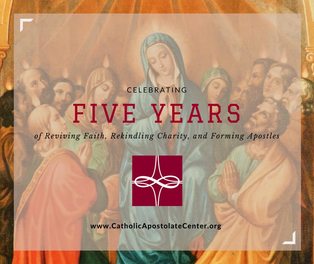
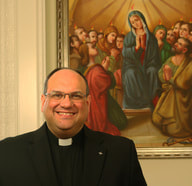
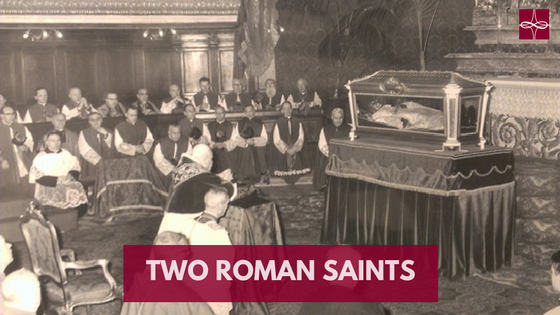

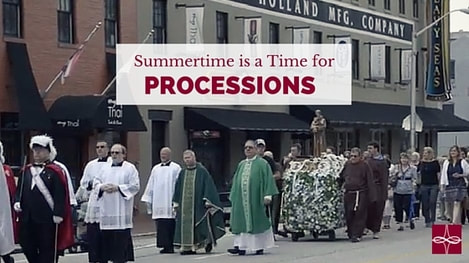
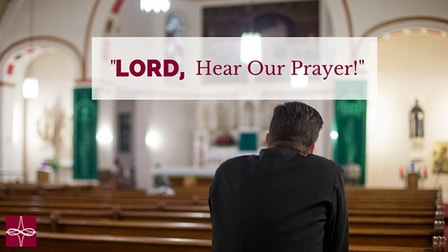

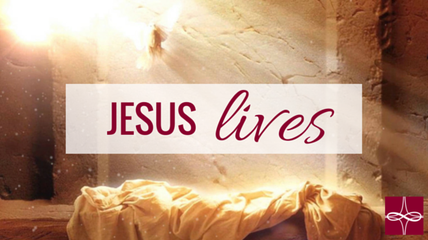

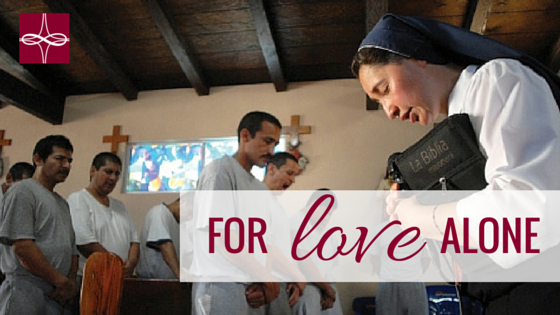
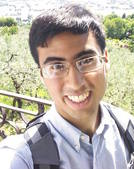
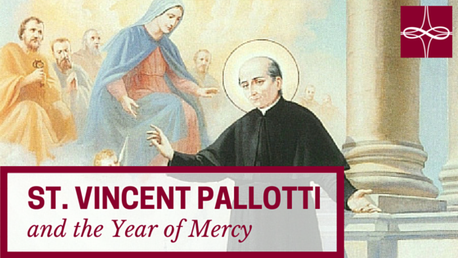

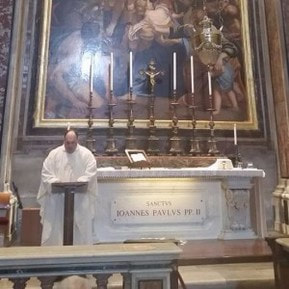
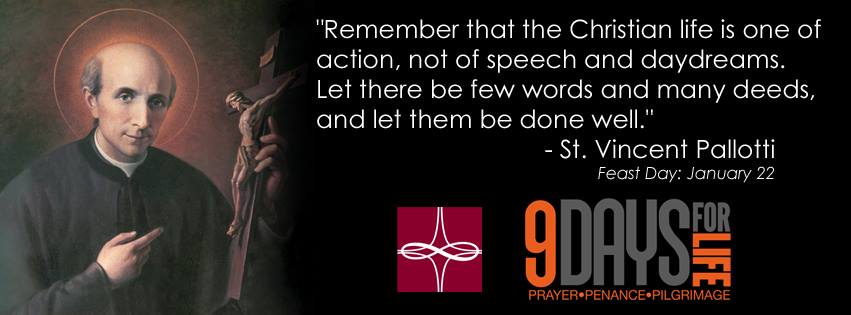

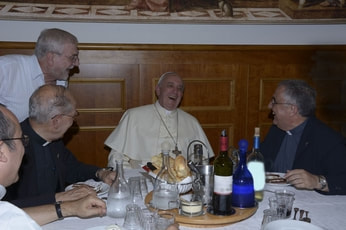
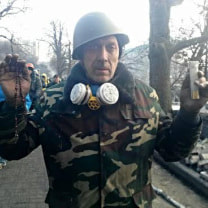
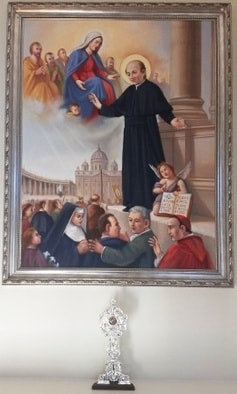

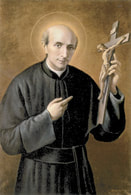
 RSS Feed
RSS Feed